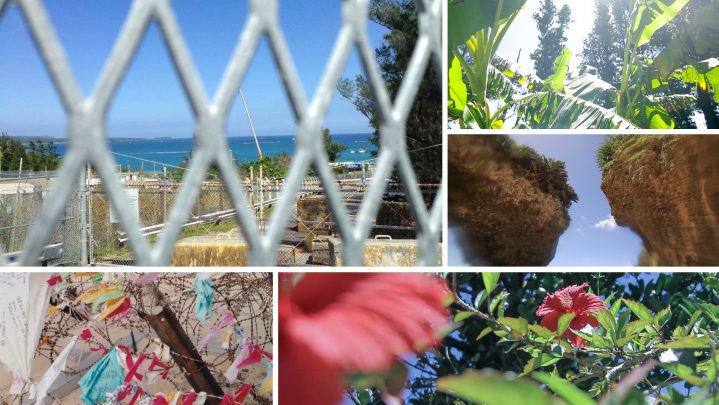 Webinar
WebinarTuesday 23 June 2020
12:00pm – 1:15pm
The US-Japan Security Alliance from an Okinawan Perspective
This event will start at 12 BST (British Summer Time)
Organised by the Daiwa Anglo-Japanese Foundation
Fully bookedIn Okinawa, June 23 is observed as Memorial Day, to remember the lives lost in the Battle of Okinawa during WWII. Nearly 50 years after the reversion of Okinawa to Japan from US military rule (1945-1972), the islands remain the keystone of the US presence in the Pacific. Although some argue that the presence of US bases is essential to maintain geopolitical stability in the Asia-Pacific region, they have been controversial from a human rights point of view as a result of a series of sexual assaults committed against local women and children. Today, despite the opposition of most Okinawans, the construction of a new state-of-the-art US military base is under way.
In this webinar, Professor Emeritus Gabe explained the origin of Japanese foreign policy and the US-Japan Security Alliance that justifies the heavy presence of the US military bases in Okinawa. Unpacking how Japan’s peace and security depend on these US bases, he provided a proposal for a more sustainable Asia-Pacific security structure. Dr Ginoza took a feminist approach, with a focus on militarised sexual violence against women in Okinawa and other base-hosting nations in the region, to provide a perspective of “genuine security,” and called for demilitarisation of the islands.
At the end of the webinar, Okinawan musician Naoko Hentona presented two recent pieces of video art (10 minutes): “Ye-il-chi,” a contemporary dance piece; and “Tinsagu no Hana”, a traditional Okinawan folk song. The video art was created in collaboration with prominent Okinawan artists Cocco and Chikako Yamashiro. For more information, please click here.
The video art can be found below:
About the contributors
Professor Masaaki Gabe
Professor Masaaki Gabe became Professor Emeritus at the University of the Ryukyus in March 2020, having previously taught courses on International Relations, including US-Japan relations, at several universities. He served as Special Assistant to the Ambassador at the Japanese Embassy in Manila from 1985 to 1986. After joining the University of the Ryukyus, he focussed his academic work on security studies, including a period of research at the Sigur Center, George Washington University, publishing a number of books on US-Japan relations from a politico-military standpoint. He was Director of the International Institute for Okinawan Studies at the University of the Ryukyus from 2010-2013, and a board member of the Japan Association of International Relations in 2013-2014. He devoted a year of sabbatical leave in 2014-2015 to researching and publishing about the Okinawa Reversion based on archival records of both governments.
Dr Ayano Ginoza
Dr Ayano Ginoza is Associate Professor in the Research Institute for Islands and Sustainability at the University of the Ryukyus. Dr Ginoza is currently serving as editor of the Okinawan Journal of Island Studies, a peer-reviewed journal in English, published annually in March. Her research interests focus on gender, militarism, post-colonialism, and indigeneity in Okinawa and other Pacific Islands. Her recent work has appeared in the journals American Quarterly, Hiroshima Peace Research Journal, and Foreign Policy In Focus.
Naoko Hentona
Naoko Hentona is a pianist and highly acclaimed composer and arranger from Okinawa. She is a graduate of the Music Creation course at Osaka University of Art. Naoko actively incorporates her Okinawan roots into her music, which covers a very diverse range from classical to world music. She has played a key role in the success of “Okinawan Utahai”stage.